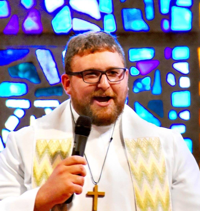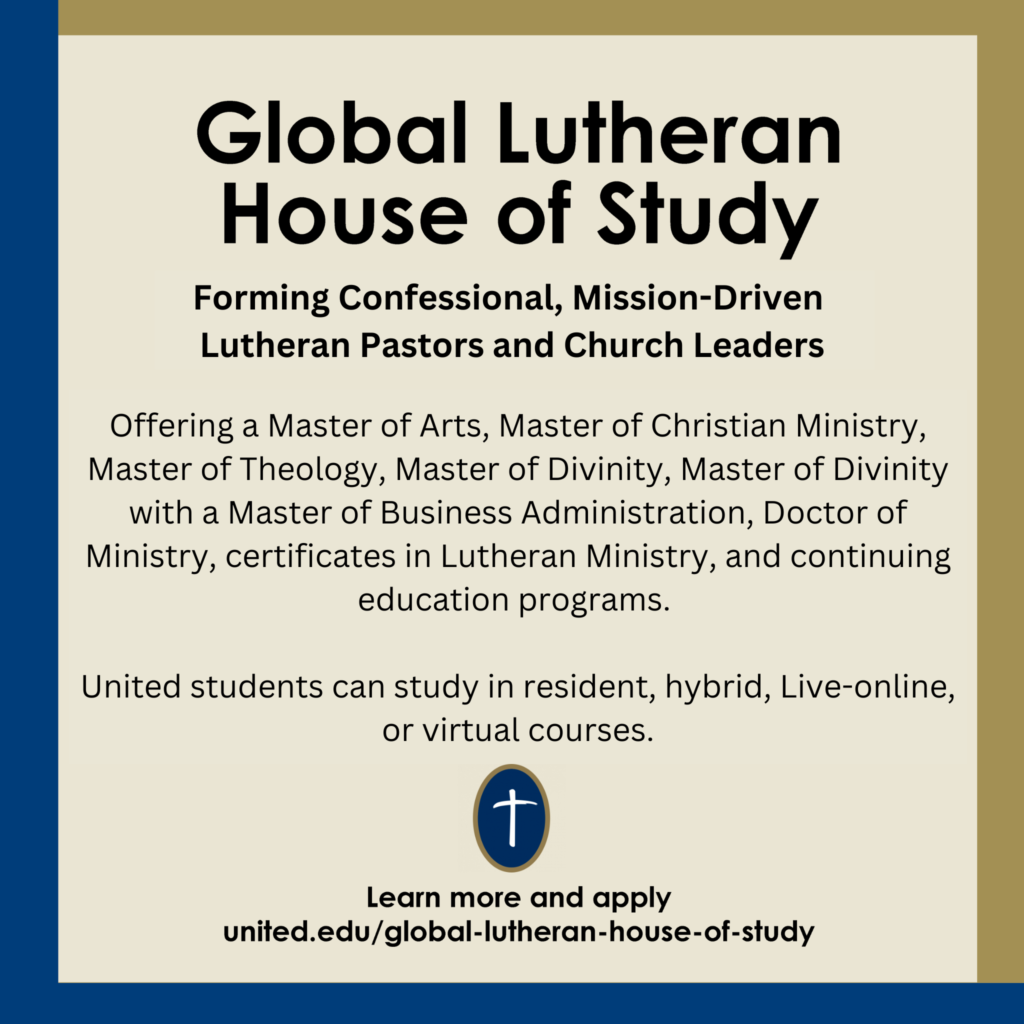Global Lutheran House of Studies


As the Directors of the Global Lutheran House of Studies at United Theological Seminary (UTS) in Dayton, Ohio (established in 1871), we are honored to announce the launch of a new program for pastoral ministry formation in the Lutheran Tradition that is deeply committed to The Historic Faith and Church Renewal. At UTS, we are motivated by the belief that the church is essential to the renewal of the world and the development of disciples of Jesus Christ. We are dedicated to empowering faithful and fruitful Christian leaders to fulfill this mission. Visit https://united.edu/global-lutheran-house-of-study/ for the most current information on The Global Lutheran House of Study at United Theological Seminary.
One way we aim to honor the legacy of Martin Luther is by emphasizing confessional Lutheran teachings and the importance of upholding and declaring the Lutheran Confessions. We believe that the church has a responsibility to remain true to its Lutheran distinctives and to pass on the rich heritage of the Lutheran tradition to future generations. This includes offering classes on the Lutheran Confessions and their relevance for practical ministry, as well as opportunities for students to learn from and connect with scholars and leaders from various Lutheran traditions.
The Global Lutheran House of Studies (GLHS) also supports its vision and goal by emphasizing education in global ministry, theology, and global Lutheran traditions. We believe that the church has a duty to confront the challenges and opportunities of a rapidly changing world, and we are dedicated to providing our students with the skills and knowledge they need to serve as church leaders worldwide. This includes classes on cross-cultural mission, global theology, and the unique Lutheran perspective on ecumenism, as well as opportunities for students to participate in international contextualization trips, mission trips, and internships as required by the programs we offer through UTS.
In addition to our emphasis on confessional Lutheran teachings and global mission, we are also committed to academic excellence and providing our students with a high-quality education. The Association of Theological Schools accredits United Theological Seminary, which includes The Global Lutheran House of Studies, and we are dedicated to helping our students achieve academic and professional success. We offer a range of educational programs and resources, including master’s degrees (M.A., Masters in Christian Ministry, Masters of Theology, MDiv, MDIV/MBA), doctorate (DMin), certificates (Lutheran Ministry and others), and continuing education programs. United students can study in resident, hybrid, Live-online, or virtual courses.

As Directors of the Global Lutheran House of Studies, we are dedicated to our students’ success and helping them fulfill God’s mission to create disciples of Jesus Christ and renew the church. We will work closely with them to provide the support and resources they need to succeed in their academics and their current and future vocations, and we encourage them to participate in school life and take advantage of UTS’s numerous activities, events, and training opportunities.
Overall, we are excited about the impact that the Global Lutheran House of Studies will have on the lives of our students and the church at large, and we are committed to carrying out this vital work in the coming years. We believe that our school is uniquely qualified to help confessional Lutheran students develop their faith and prepare for mission-driven leadership in the Church. For more information, visit https://united.edu/global-lutheran-house-of-study/. The first twelve admitted MDiv students receive 50% off tuition, with additional scholarships available for other programs, including the DMin.
The Directors of the Global Lutheran House of Studies at United Theological Seminary in Dayton, Ohio, are Reverend Dr. Thomas Thorstad STS, Reverend Daniel Landin, and Reverend Dr. Richard Blue, Jr. The faculty and staff serve this house of study, who are all Lutheran pastors within various Lutheran denominations, have been approved and remain in good standing with ongoing approvals as of January 1, 2023.. The faculty and staff include Reverend Dr. Douglas Schoelles, Reverend Dr. Wesley Teixeira, Reverend Dr. Rod Ford, Reverend Dr. Thomas Thorstad STS, Reverend Daniel Landin, and Reverend Dr. Richard Blue, Jr.
Image in page header (left to right): Rev. Richard Blue, Rev. Thomas Thorstad, Rev. Daniel Landin















